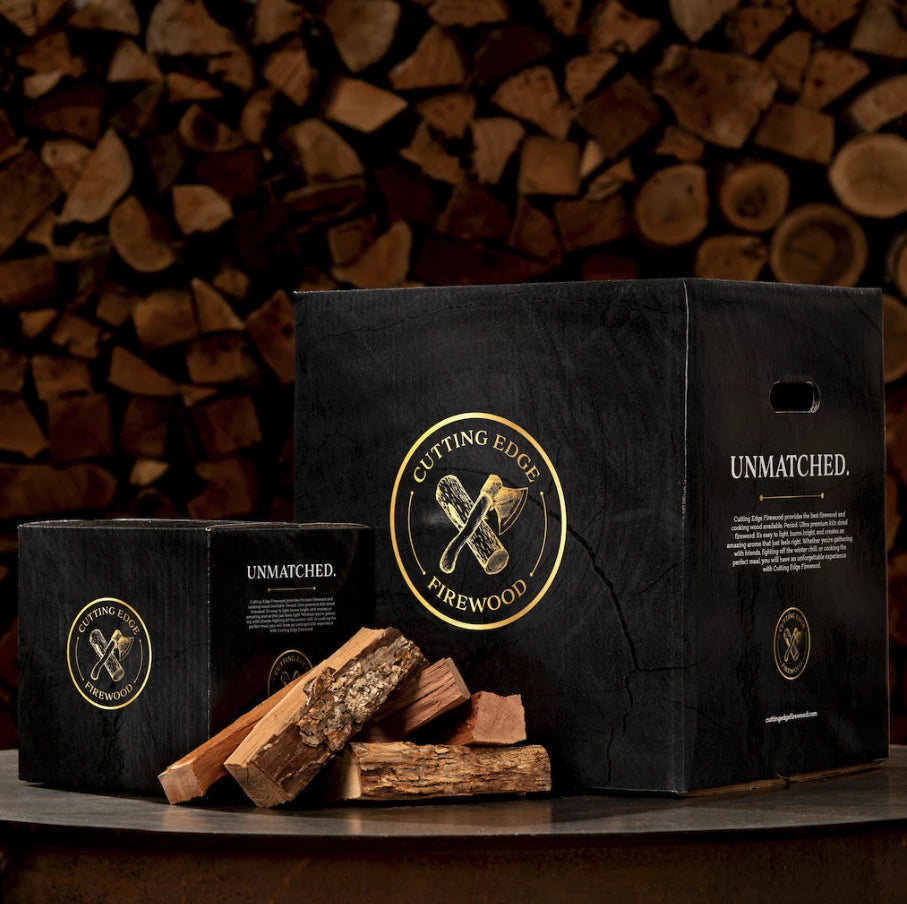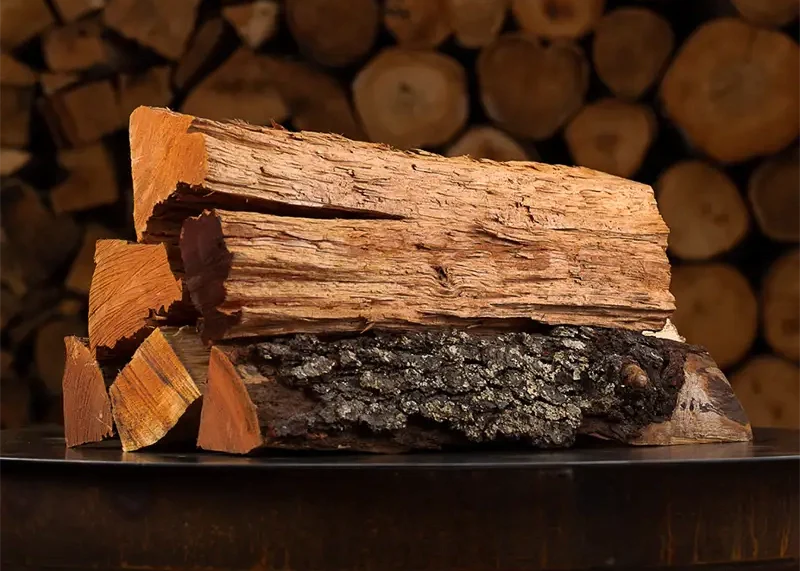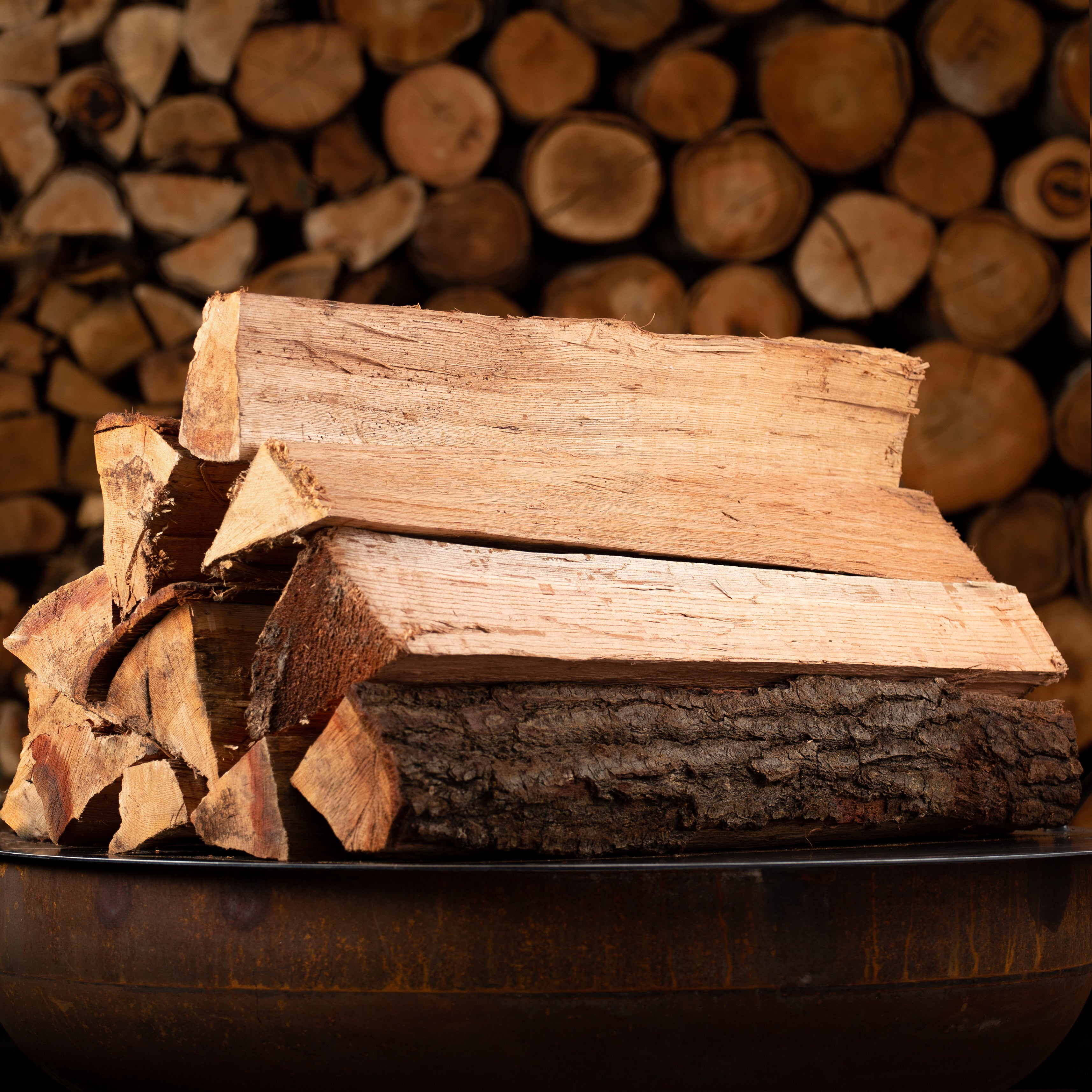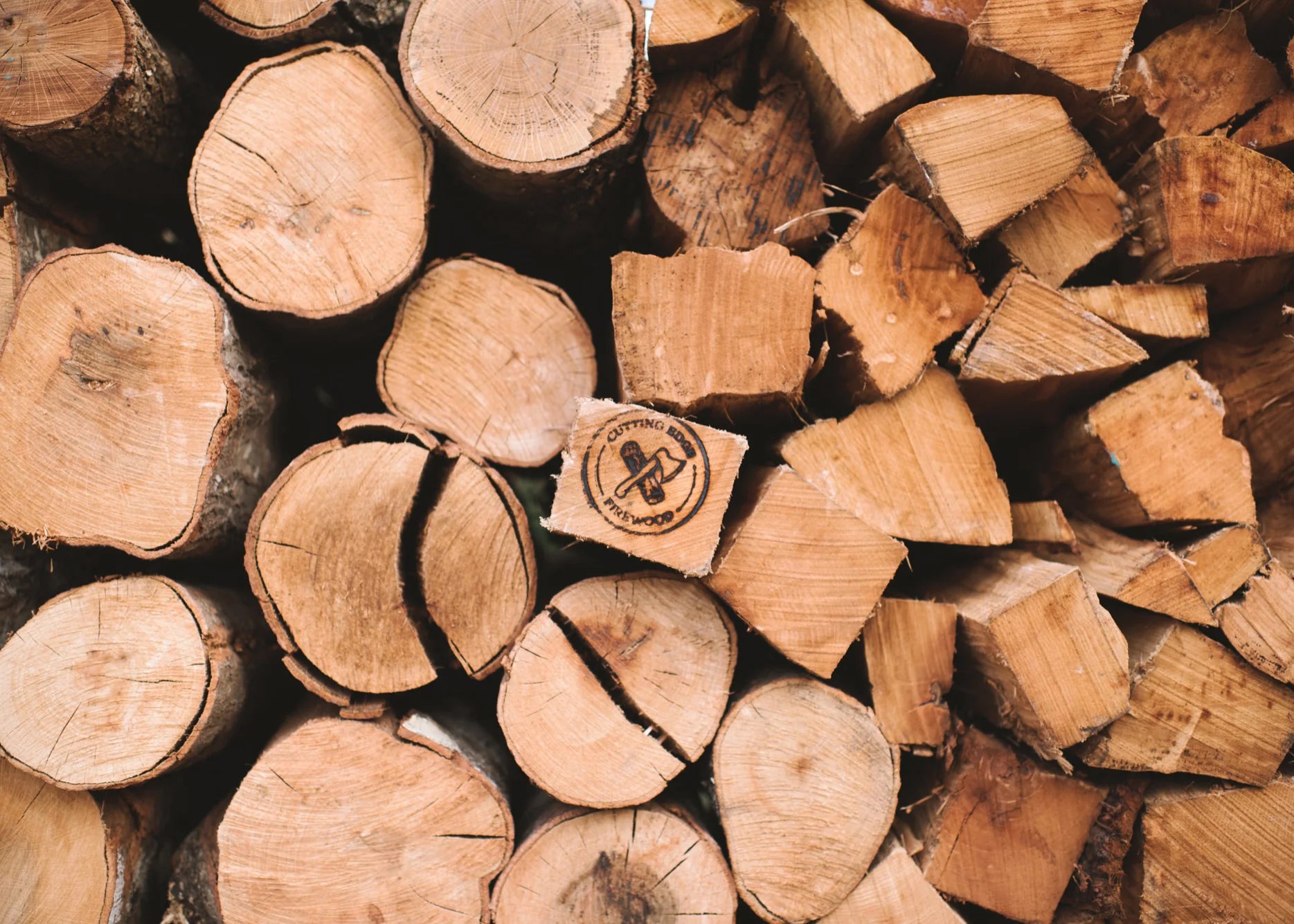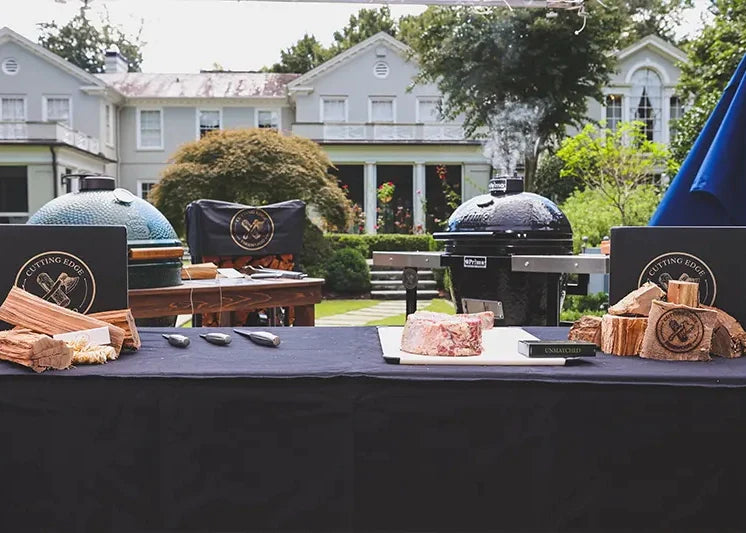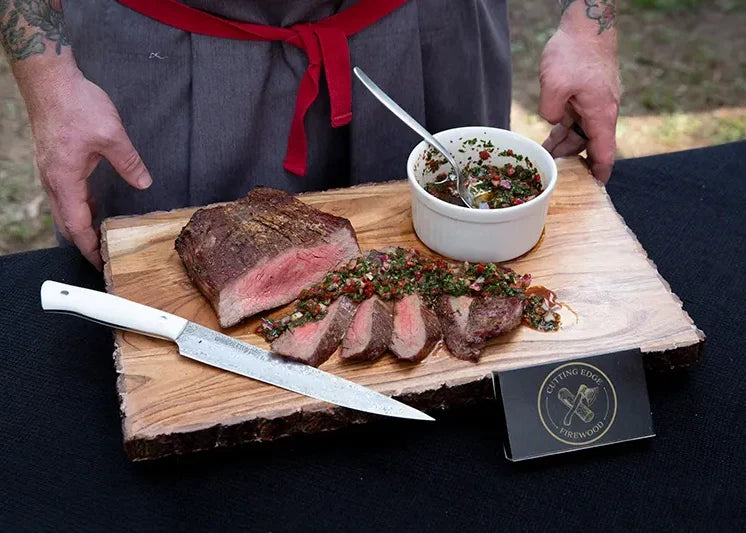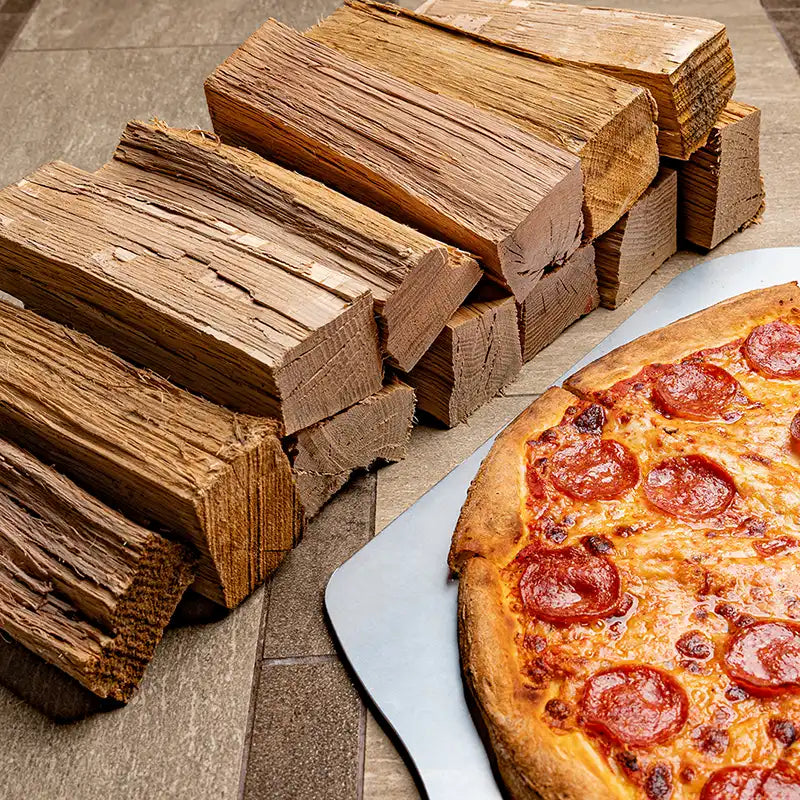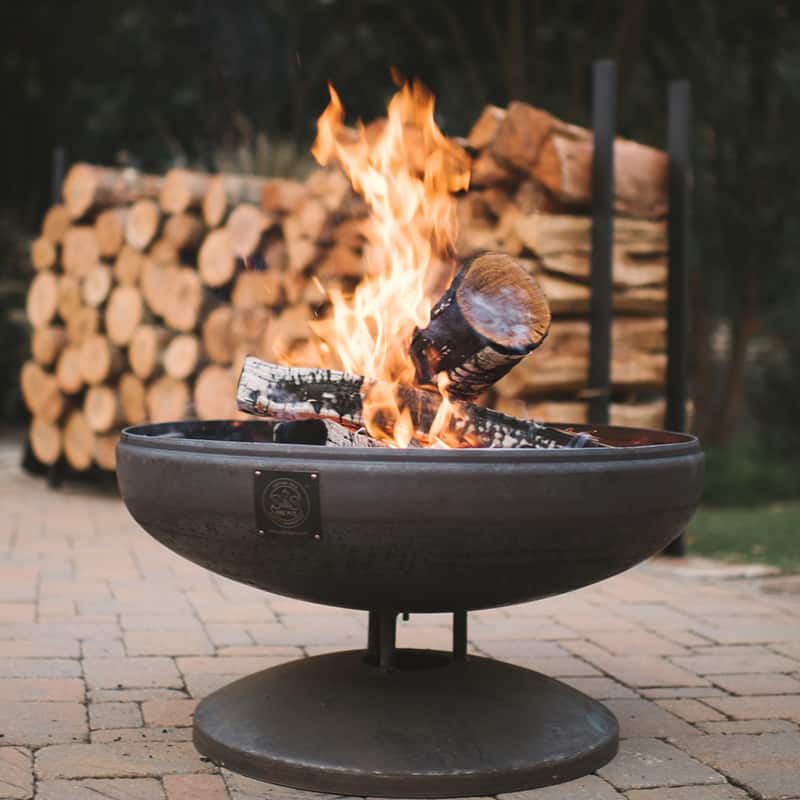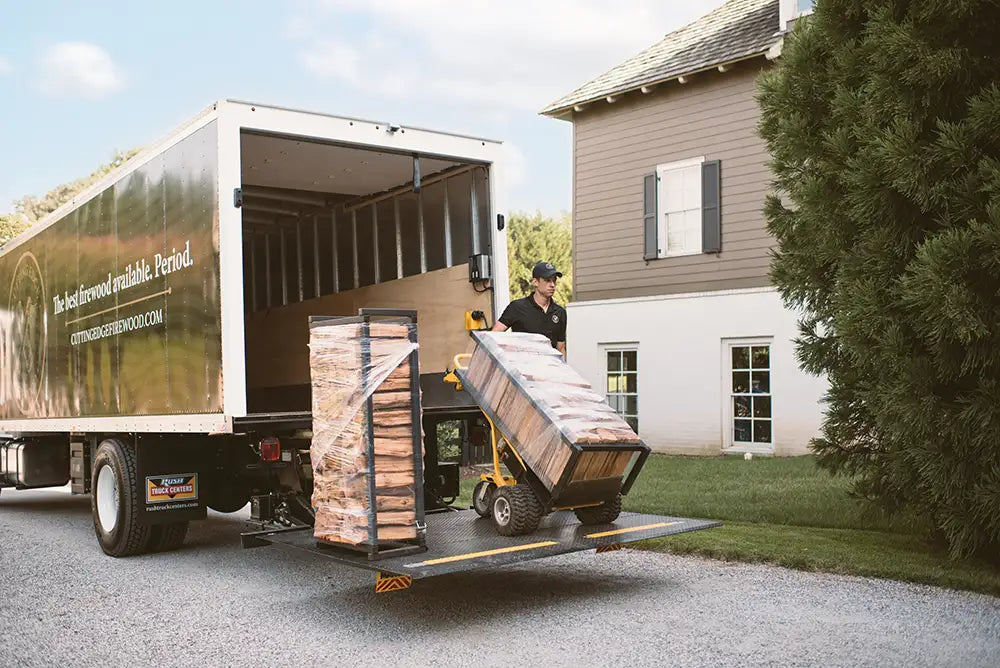It's disheartening when you prepare and light your grill, only for a sudden rainstorm to roll your way. When the rain begins to fall, you may assume that you can no longer grill. After all, grilling requires a hot fire, and water can extinguish fires. While it's difficult to grill during severe rainstorms, though, light showers shouldn't stop you from grilling. By taking a few basic precautions, you can easily grill during light showers.
Don't Use an Electric Grill
First and foremost, it's important to note that you shouldn't use an electric grill if it's raining outside. If your grill requires a corded connection to a wall outlet, don't use it outdoors. You can use it indoors, but conventional wisdom should lead you to believe that electricity and rain don't mix.
Instead of using an electric grill in the rain, use either a charcoal or propane gas grill. Propane grills are typically easier to light, but most pitmasters will agree that charcoal grills offer the best flavor. Whether you use lump charcoal, charcoal briquettes, cooking wood or any combination thereof, it will produce flavorful smoke that injects your food with delicious new flavors. Of course, you'll need to position your charcoal grill in the right area to keep it dry. Otherwise, rain will likely extinguish it -- or at the very least -- lower its cooking temperature.

Place Grill Under a Covered Area
Placing your charcoal grill in an open area of your patio or outdoor living space where it's directly exposed to the rain is never a good idea. High-quality charcoal grills can withstand small amounts of moisture. Large amounts of moisture, on the other hand, may cause them to rust. Therefore, you should place your grill under a covered area where it won't be directly exposed to the rain.
By placing your grill under a covered area, you'll also promote a higher cooking temperature. As rain falls onto the top of your grill, it will lower your grill's cooking temperature. It may not necessarily extinguish the fire, especially if the lid is closed, but it will certainly create a cooler environment inside your grill. And if the cooking temperature drops too low, you may struggle to grill delicious food with a seared, crisp exterior.
So, where can you place your grill when it's raining? If your patio has a roof or canopy, you can place your grill under it to protect it from the rain. With that said, the roof or canopy should be at least 9 feet high. If it's lower, the heat from your grill may singe or burn it.
You can also place your grill under a large tree to protect it from the rain. Trees with large and dense foliage will naturally block the rain. Some rain may still make its way onto your grill, but it shouldn't be enough to negatively affect the performance of your grill.
Keep Charcoal or Cooking Wood Dry
You'll struggle to light your grill if you're using wet charcoal or cooking wood. Some pitmasters store their charcoal or cooking wood outside, especially if they're planning to grill in the near future. This generally isn't a problem, but if it happens to rain, your charcoal or cooking wood will get wet -- and wet charcoal or cooking wood can be nearly impossible to light.
Regardless of which type of fuel source you intend to use, you should store it in a dry area. Don't just leave your charcoal or cooking wood on your patio. Even if your patio is covered, moisture in the air (humidity) will saturate it with water. Instead, store your charcoal or cooking wood inside your home or garage, and only remove it when you are ready to start your grill.
Build a Hot Fire
To grill in the rain, you must build a hot fire. The hotter your fire, the better protected it will be from the rain's cooling effects. It's not uncommon for grills to reach an internal temperature of over 1,000 degrees Fahrenheit. At this temperature, grilled meats will develop a seared exterior that traps their juices. Unfortunately, rain can lower the internal temperature of your grill. As moisture settles on your grill, it will lower the internal temperature.
Here are some tips on how to build a hot fire in the rain:
- When using charcoal, choose lump charcoal rather than charcoal briquettes.
- When using cooking wood, use kiln-dried firewood rather than fresh or air-dried firewood.
- Add a large pile of charcoal or cooking wood.
- If your grill is wet, dry it before adding charcoal or cooking wood.
- Light using tinder and kindling in the bottom center of your charcoal or cooking wood.
- Open the dampers so that air can flow more freely through your grill.
- If your grill's temperature begins to drop, add more charcoal or cooking wood.

Close the Lid
When grilling in the rain, keep the lid closed to protect the burning charcoal or cooking wood from moisture. Whenever you open the lid, rain -- or at least moisture vapor in the air -- will enter the inside of your grill and potentially extinguish your fire. Therefore, you should try to keep the lid closed as much as possible when grilling in the rain.
Use a Remote Thermometer
Does your grill have a remote thermometer? If not, you should consider investing in one. As the name suggests, a remote thermometer allows you to check the internal temperature of your grill without opening it. They generally consist of a probe that's placed either inside the grill or inside food, as well as an electronic display that reads the probe's temperature. The probe is connected to the electronic display by a long cord, allowing you to read the temperature of your grill without opening it. You can purchase a remote thermometer for about $20 to $30, making it a smart investment for serious pitmasters.
Dry Grill After Using It
Don't forget to dry your grill after using it in the rain. If you don't dry it, the lingering moisture will trigger a chemical reaction known as oxidation with the metal of which your grill is made. Going back to the basics of chemistry, oxidation is the catalyst for corrosion, as it causes metal objects and surfaces to develop rust or corrosion.
You shouldn't dry your grill immediately after using it in the rain. Grills can hold a lot of heat for a long time. Attempting to dry your grill just minutes or hours after using it may result in injury. So, err on the side of caution by waiting at least 24 hours. After a full day has passed, wipe the interior and exterior of your grill with a washcloth or some paper towels to dry up any lingering moisture. It only takes a few minutes to dry your grill, but doing so will prolong its life by protecting it from rust and corrosion.
Whether you live on the East Coast, the West Coast or somewhere in between, you're bound to encounter bad weather sooner or later. The good news is that you can still grill delicious foods even if it's raining outside. Just remember to follow the tips outlined here.
Stock up on premium firewood for cooking by visiting our online store today.

